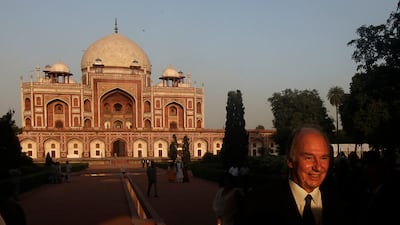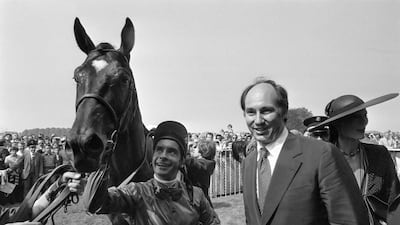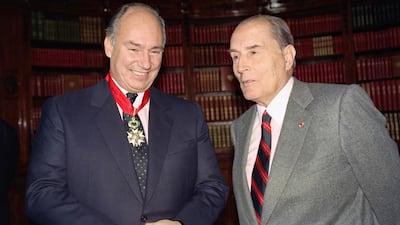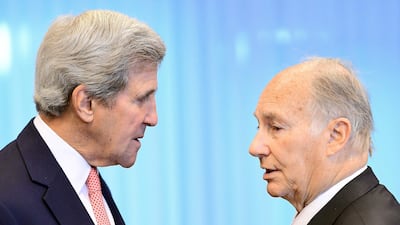The Aga Khan, renowned for his success in horse racing, dazzling wealth and rural economic development, has died in Lisbon at the age of 88. His death was announced by the Aga Khan Foundation on Wednesday morning.
Prince Karim Al Hussaini, better known as the Aga Khan IV, was the 49th hereditary imam and spiritual leader of the world's 15 million Ismaili Muslims. He was synonymous with success as a racehorse owner, with the thoroughbred Shergar among his most famous.
The Aga Khan's charities ran hundreds of hospitals, educational and cultural projects, largely in the developing world.
On Wednesday the Aga Khan Development Network said that his son Rahim Al Hussaini had been named the Aga Khan V, the 50th hereditary imam, in his father’s will.
"We offer our condolences to the world’s Ismaili Muslims on the death of the Aga Khan," Sheikh Mohammed bin Rashid, Vice President and Ruler of Dubai, wrote on X. "He was not only a great leader for his people, but a true friend and an equestrian who loved and understood horses deeply. Above all, he stood as one of the world’s greatest philanthropists, whose life’s work was dedicated to relieving the hopelessness of poverty and promoting human development, building bridges between communities and working tirelessly in the cause of peace."
"Leaders and staff of the Aga Khan Development Network offer our condolences to the family of His Highness and to the Ismaili community worldwide," The Aga Khan Development Network added. "As we honour the legacy of our founder, Prince Karim Aga Khan, we continue to work with our partners to improve the quality of life for individuals and communities across the world, as he wished, irrespective of their religious affiliations or origins."
Global impact
The network serves millions of people in 29 countries and aims to bring a wider understanding of Islam, and to foster a brotherhood within the Ummah.
As one of the first museums of Islamic art in North America, the Aga Khan Museum in Toronto, Canada, helps deepen understanding and knowledge exchange between cultures and faiths.
In 1977, the Aga Khan established the $1 million Aga Khan Award for Architecture awarded every three years to projects that are judged to set new standards of excellence while addressing the needs of communities in which Muslims or Islamic heritage have a significant presence. Its 13th cycle was held in Al Ain in 2016.
In 2017, under the mentorship of the Aga Khan Award for Architecture, a new education initiative, the Young Architects and Design Programme, was established in partnership with Alserkal Avenue.

The following year, the Aga Khan visited the Emirates as part of a diamond jubilee tour marking 60 years as spiritual leader of the Shiite Ismaili Muslim community, where he was received by Sheikh Mohammed.
The Aga Khan Award for Architecture has documented thousands of projects, including Jean Nouvel’s Institut du Monde Arabe in Paris, Al Azem Palace in Damascus, Louis Kahn’s National Assembly Building in Dhaka, and the Petronas Twin Towers in Kuala Lumpur.
In 2019, Sharjah's Wasit Wetland Centre was named a winner of the award, with Concrete in Alserkal Avenue and Al Mureijah Art Spaces at the Sharjah Art Foundation also nominated. The restored Flying Saucer in Sharjah was shortlisted in 2022.










